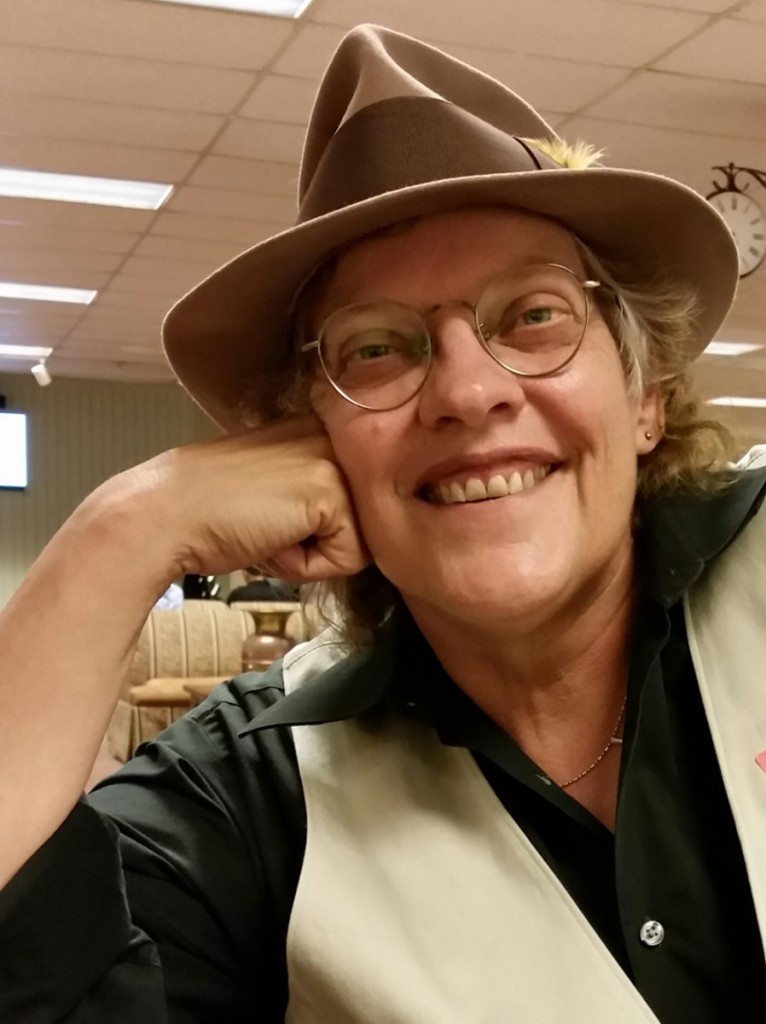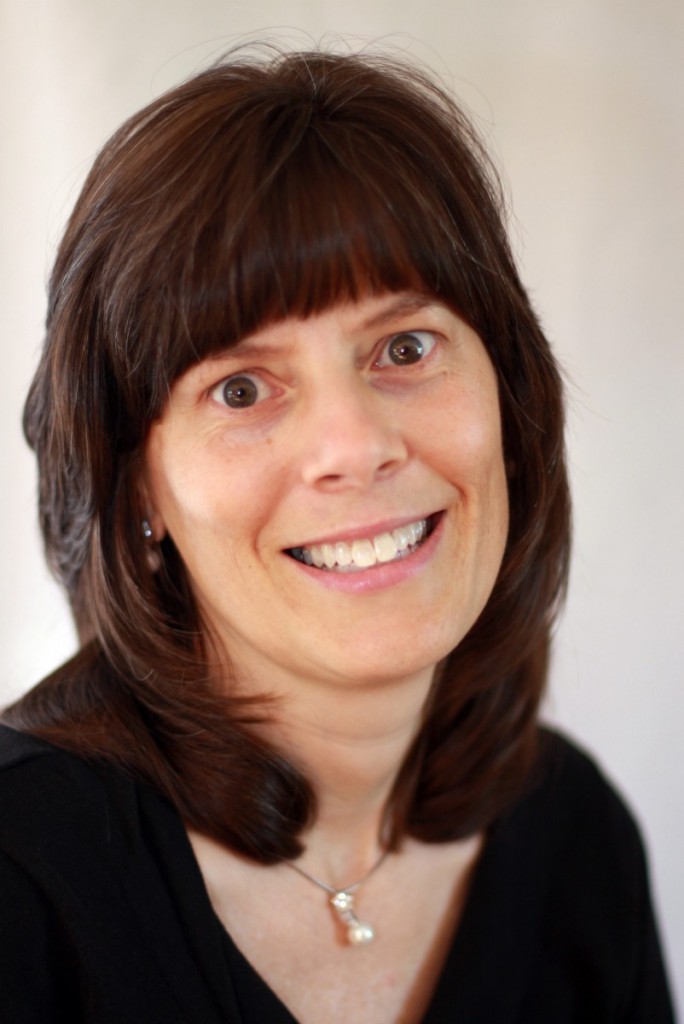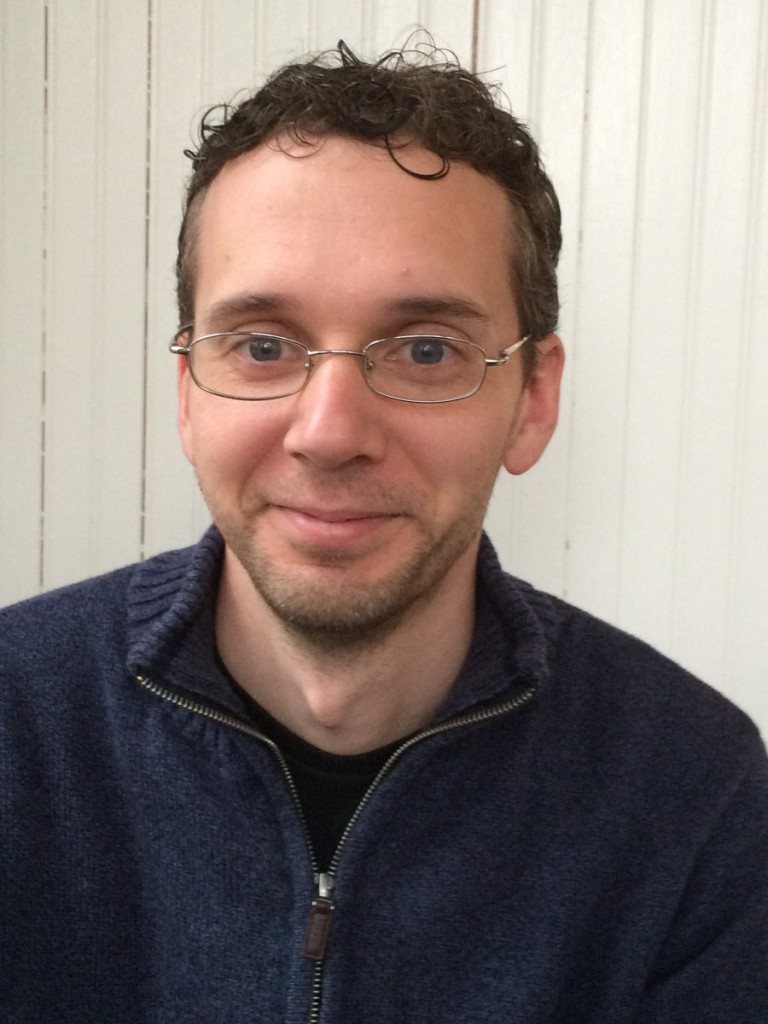
Sam Dennison
AGREES Income Inequality Threatens Democracy
Note: Sam was the winner of the 2016 debate, earning the gold medal and title of America’s Greatest Thinker.
Exactly ten years ago, Sam was selected as a finalist in the 2006 Great American Think Off, arguing successfully that freedom is more valuable than safety. At that time, Sam worked in higher education both as a teacher and administrator in Minneapolis, and has since changed both name and location, but not a passion for social justice and love for civil debate. Nowadays, Sam lives and works in the Tenderloin District of San Francisco, CA at Faithful Fools, a non-profit dedicated to building community through art, education, advocacy and healing. This organization is deeply engaged with issues of poverty, homelessness, and now in the face of intense development, increasing and soul-crushing income inequality. So it was only natural that Sam submit an essay on this year’s Great American Think Off topic: Income Inequality Threatens Democracy. Sam is honored and grateful to once again be chosen as one of the final four, and is looking forward to seeing old friends and engaging in a lively conversation with the other finalists at the Cultural Center in New York Mills.
It begins with small things: Standing on the steps of city hall and being turned away, your district supervisor has decided to take a meeting with someone else; Speaking at a public hearing, having your comments heard with toleration but then dismissed as naïve; Going to your polling place, finding it closed—you were required to work overtime—you missed voting by a just a few minutes; Enrolling your child in a run down public school just a few blocks from a well-kept private academy. Yes, hopelessness begins small, but grows easily. It’s chief among the litany of ills that comes with income inequality because, simply put, there is no greater threat to democracy than hopelessness.
Hopelessness becomes apparent in the same way that slowly peeling paint reveals a home’s occupants to be an elderly couple on a fixed income. At first, it just seems that the task of repainting has been put off, but it becomes clear that the house is slowly rotting for want of care. Some neighbors pronounce harsh judgments on the laziness of the homeowners. But if you lived in that house, you noticed long ago the need for a fresh coat of paint, and your inability to do the work eats at you every day. It leaves you feeling listless and helpless.
You who live in another part of the country, perhaps in a big city, will find the erosion of hope takes all of your attention so you don’t notice what’s happening at city hall, much less in the legislature. You don’t notice the new city ordinances that add fees for court appearances so your son (who was ticketed for “tagging” a building) will now have to spend the night in jail because he couldn’t pay both the fees and the fine for the vandalism he’s accused of. That night in jail will now cost him his job at the convenience store and the family, depending on his check for rent, will be evicted. You were so worried about your youngest child’s asthma that you didn’t hear about the laws making it illegal to sleep in a car and that the penalty for doing so, even as a homeless family, now includes impounding both the vehicle and its contents. Your daughter wanted to be a medical assistant, so she took out student loans. But she realized too late she couldn’t repay that $40,000 loan on entry-level pay. When she defaulted, her wages were garnished. The law says student loans cannot be bankrupted, so there is no way out. With no credit, she turns to a payday lender to pay her bills. She thought it would be a one-time thing, but the interest rates are so high that she can’t repay this loan either. Soon she’ll stop working because every paycheck is eaten up by the interest on one loan or the other.
This is how the rich and the poor become enemies. The poor see the rich as callous; the rich see the poor as inept. Worse yet, the poor are consumed with the fear of losing it all while the rich think the system is working well enough. It’s not possible to be both poor and a vigilant citizen. It’s too hard to stay housed and pay attention to what laws are being proposed. To be a thoughtful citizen, you must have enough to eat, and a place to live. You must have faith in the goodwill of others and the conviction that your wellbeing is tied up with your neighbors. But those who see sleeping on the streets as disgusting want to clean up the streets by arresting panhandlers. After all, it’s very hard to see your wellbeing tied up with beggars who could just get a job and support themselves.
Caught between the two extremes, democracy becomes a shadow of its former self. Like that home needing a coat of paint, it seems sad at first but then the elements begin to eat away at the structure itself. It begins to fail, little by little. The windows don’t keep the cold out anymore, the roof begins to sag, the walls begin to buckle. At the heart of it all is a simple truth: democracy cannot survive without equality. To see one another as equal requires a certain sense of fair play, a sense of mutual respect. Without the fundamental belief that each of us is created equal with certain unalienable rights—including the right to hope—democracy will fail.

Kim Larson
DISAGREES ~ Income Inequality does not Threaten Democracy
Note: Kim was defeated by Alex Liuzzi in the first round, earning the bronze medal.
Kim retired from a career in mortgage lending in 2010 to pursue her dream of writing. Her poetry and short stories have since been published in the Lake Region Review and The Talking Stick. Kim has completed two novels and is currently working on a nonfiction book. Besides leading a writing group that meets twice a month in her home, Kim enjoys gardening, both flowers and vegetables. She has two grown sons, two married stepchildren, and a dozen grandchildren. She and Chuck, her loving and supportive husband of twenty-one years, live in Moorhead, MN.
In 2009, my husband and I built a home in which we hoped to retire. That November, the residents of our fair city voted to approve a school levy that increased our home’s property tax by $800 annually. When contemplating whether or not to build a new home, an increase in our property tax was a concern we weighed heavily. But we were unaware of the impending vote. Six years later, in 2015, our school board called for another vote. This time its residents passed a 78 million dollar bond, which once again increased our property tax. This time only $400. Of our property tax, nearly $1700 goes to our school district, of which we have no children attending.
That is an example of democracy in action. Each person is given an equal vote whether they are rich, poor, own real estate or not. Was it fair that those without children could pay more than those with children? A democratic society places no restrictions on who can vote regardless of who will benefit or be negatively impacted by the outcome. The majority rules! A democracy gives the power to the people in the form of a vote regardless of income or lack of income, and we freely elect representatives to vote on our behalf at local, state, and national levels.
Income inequality does not threaten democracy. The real threat is selfishness and complacency. In regard to the school referendum, I didn’t want my property taxes to increase. The question then became, “Do I vote for what is best for me or what is best for my community?” We often vote for what is best for our pocketbooks, which includes both rich and poor. Selfishness is undiscriminating. The Bible doesn’t say money is the root of all evil, it’s the love of money.
The inequality of income would never be considered a threat if we loved, or even cared about, our neighbors as ourselves. Regardless of our income, we would be concerned about the greater good of our community. Disparity in income isn’t the issue, it is selfishness. Inequalities will always exist, and democracy works because each person is given a vote.
One might argue that those with money buy votes, they lobby and influence people’s decisions. The rich have more money to campaign and therefore sway voters their way. However, each person is responsible for their own choice. A smart campaign learns what people want or are willing to give up, as in the case of our school referendum. The school board did its homework and learned that people would accept an increase in property taxes if it was less than $10 a month. So that is what they proposed—for homes valued at $150,000. The rest of their campaign addressed the problem of our overcrowded schools, making it seem like their answer was the only solution.
Here’s where complacency comes in. Who knew if we were being told the truth? Each voter should become educated on an issue or a candidate in order to cast their ballot wisely. Instead of attending a school board meeting, I emailed the board members my concerns and questions. A few days later I received a phone call from one of the school’s superintendents, who answered questions to my satisfaction. In this age of information and technology, there is no excuse for not being informed—and especially for not voting.
Forty percent of Americans did not vote during the last presidential election, an example of complacency, not democracy, in action. This year I was tempted to vote in the primaries for the first time. But I didn’t. Add laziness to the list of reasons for complacency. However, my penniless son in college voted. A young man who barely scrapes by each month took the initiative to attend his first primary election.
Minnesotans can be proud of their 75% turnout rate in the last presidential election, the highest of all the states. Was the higher voter turnout because our citizens are wealthier? More educated? Statistics show that people with higher income and education are more prone to vote. And how do they vote? The great state of Minnesota is known for providing quality education to its children and benevolent services to its less fortunate. If democracy could ever be threatened, it would be from complacent citizens not exercising their right to vote or voting for what best benefits themselves.

Alex Liuzzi
DISAGREES ~ Income Inequality does not Threaten Democracy
Note: Alex Liuzzi advanced past the first round, but was defeated by Sam Dennison in the final round, earning the silver medal.
Alex lives in St. Paul, MN with his spouse and three children. After more than two decades teaching students from age 1 through 82, he is now working as a Teacher Education Specialist for the Minnesota Board of Teaching. In the spare time that he does not have, he self-publishes novels, swing dances, listens to the Minnesota Twins, and ruminates on political and philosophical issues.
Growing and unjust income inequality in this country is a disgrace, but it is not a barrier to democratic engagement. Rather, income inequality is a motivating factor helping facilitate a robust democracy.
Democracy starts with individuals having the ability to contribute their voice in shaping the direction of society. This voice can be expressed through simple acts like voting or through more direct proposals and actions that interact with legislation and policy. Democracy, however, does not dictate the level of engagement.
Democracy allows individuals to express their voice at the level they desire. A functioning democracy will have all levels of participation, from public service to no participation. The measure of a democracy is in the process, not in the outcome. A functioning dictatorship may create income equality. Democracy does not guarantee any outcome, just participation in the process.
Growing up in poverty dotted with stages of homelessness, my childhood was undeniably located at the lower end of the income spectrum. At the age of 14, I lent my voice to protests on the Gulf War. At 22, I was the treasurer for a green party city council candidate. At 24, I started representing my precinct and district at local caucuses. I participated as fully as I desired while trying to finish college, raise a newborn baby, and help support a family as a wait-assistant and part-time baker.
Income inequality was not a threat to my participation in democracy. It motivated my involvement. It pushed me to engage in ways that could improve my situation, from fighting for increases to the minimum wage, to lobbying the parks board to build a new playground in my low-income neighborhood. Nothing about the gap between my poverty-level income and the income of the millionaires around legislative tables and caucus rooms prevented me from participating in democracy at the level
I desired.
Experiencing poverty and homelessness, and seeing the wealth of others motivates me and many others to engage in our democratic system to more progressively allocate resources. Helping shape the economic system for greater income equality is democratic engagement.
The desire to protect what we have motives those at the higher end of the income spectrum to engage in democracy as well. The successful passage of tax provisions and corporate welfare policies provide convincing evidence that income inequality is a motivating factor for those with greater monetary resources. Helping shape the economic system for self interest is democratic engagement.
I do not deny that there are lower-income individuals swayed by arguments promoting policies that expand income inequality, or that seemingly work to disadvantage their position. One could argue these beliefs are formed by the messaging made available to those with wealth. I believe this demeans the intellect of individuals participating in democracy, and ignores the fact that agency and free will are key components of a democratic system. There are also wealthy individuals who support progressive tax policies that limit their wealth and work to narrow income inequality. Reasoned participants in a democracy shape their own values and engage in the democracy to promote these values.
There are tangible barriers to democratic engagement that threaten democracy. Laws preventing entire groups of people from voting threaten democracy. Practices that make it more difficult to vote threaten democracy. Income inequality is not a barrier. There is no fee for democratic participation. Rather, income inequality incorporates many issues that motivate participation, from low-income housing to tax policies, the achievement gap to public funds for stadiums, clean drinking water to defense spending. Income inequality encourages participation in the process of democracy by those working toward a range of outcomes, from expanding the economic systems that widen income inequality to those working to change these systems to reverse it.
Democracy requires free will, agency, and the ability to engage in the democratic process. Income inequality is not a barrier to these requirements. Therefore, income inequality does not threaten democracy. The powerful social, political, and economic issues that sustain and challenge income inequality actually motivates individuals to more actively engage in the democracy. Though the outcome may not be fair for all or even many, the process of democracy remains strong.
 Alice Obrecht
Alice Obrecht
AGREES Income Inequality Threatens Democracy
Note: Alice was defeated by Sam Dennison in the first round, earning the bronze medal.
Originally from Wheaton, IL, Alice currently resides in London, England, carrying out research on international humanitarian assistance for the Active Learning Network for Accountability and Performance (ALNAP). Her background is in NGO ethics and performance, with a focus on accountability. Alice earned her PhD from the London School of Economics and carried out field work and consultancy research in Mongolia and Kenya.
Accountability is what defines democracy: democratic political systems are unique because they allow people to hold their governments and political leaders to account through elections and through exercising their rights to civic action and protest. Accountability is what makes democratic governance truly of the people, by the people and for the people. The question of whether income inequality threatens democracy is therefore a matter of whether income inequality threatens the accountability mechanisms that are intrinsic to, and constitutive of, democratic systems.
I want to argue that income inequality undermines the accountability mechanisms necessary for a functioning democracy, but not in the ways we ordinarily think. Some argue that inequality undermines democracy because wealthy individuals can spend money to influence the public through political advertising, or ‘buy’ politicians through campaign contributions. But this argument misunderstands the role that personal responsibility plays in a democracy, and underestimates the abilities of working and middle class voters to make informed decisions. I have seen Mongolian herders and farmers achieve policy victories by driving their trucks and horses into Ulaanbaatar to shut down roads in protest of the influence of foreign investors in
Mongolian politics. I have seen people laugh, and ignore, political advertising backed by millions of dollars in several countries including the United States. The recent election cycle offers clear counter examples to the argument that super PACs and similar entities undermine democracy: those who spent the most money are not winning.
For this reason, I used to believe that democratic accountability is a pure equalizer— wealthy individuals do not get more votes than poor individuals, and everyone can exercise their right to politically organize, regardless of their income. So long as appropriate accountability mechanisms exist, then issues of culture, gender or socio-economic status will be irrelevant. My belief has been supported through many experiences in my work on accountability in international aid, witnessing people around the world claiming power through accountability mechanisms in political and international institutions.
And yet, I have come to believe that income inequality does indeed undermine democracy. Why?
Sitting in a car with a high ranking official in West Africa, I asked why it was that so many West African countries struggled with electing popular and effective leaders—why was it that people had the opportunity to vote for better politicians who would work for their interests, yet continued to support those that everyone widely complained were corrupt. Why don’t people hold their leaders to account? ‘Accountability,’ she answered, ‘is for the rich.’ At first I thought she was referring to the influence of campaign contributions by wealthy elite, but her explanation surprised me. ‘When a mother does not know how she is going to feed her children next month, and a campaign worker offers her ten dollars for her vote this month, of course she is going to take that ten dollars, regardless of the views or policies of that candidate.’ She is going to put the short-term, urgent needs of her children over the longer-term potential for political improvement.
While in the United States we do not see politicians paying people for their votes, a similar dynamic faces lower middle class and working class voters at the polls. Voters who feel increasingly disenfranchised and under strain from widening income inequality in this country are pressed to re-prioritize their values, leaning towards politicians with more extreme policies that have the potential to address their economic needs in the short-term.
This is not to say that those with lower incomes cannot make good decisions—quite the opposite. The point is that, what counts as a good and rational decision for people in impoverished socio-economic situations are not the choices that these same individuals would make if they were reflecting on their full range of values and needs. Their ability to reflect on this fuller range of values and preferences, and to vote based on it, is inhibited by the more pressing and urgent needs they face due to their impoverishment.
The problem with income inequality is not that the wishes of middle and working class people are overridden by the preferences of the wealthy through undue influence. The problem is that these individuals are forced to vote in ways they otherwise would not, in the hopes of securing a minimally decent life for themselves and their children. As a result, the accountability mechanisms that are core to a functioning democracy break down, and cease to represent the deeper values and interests of the entire populace.